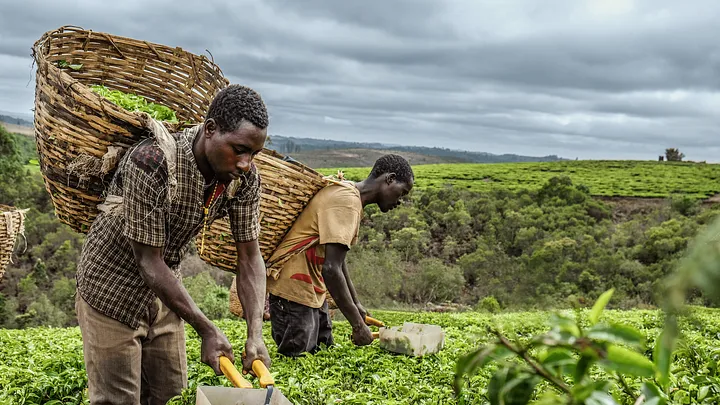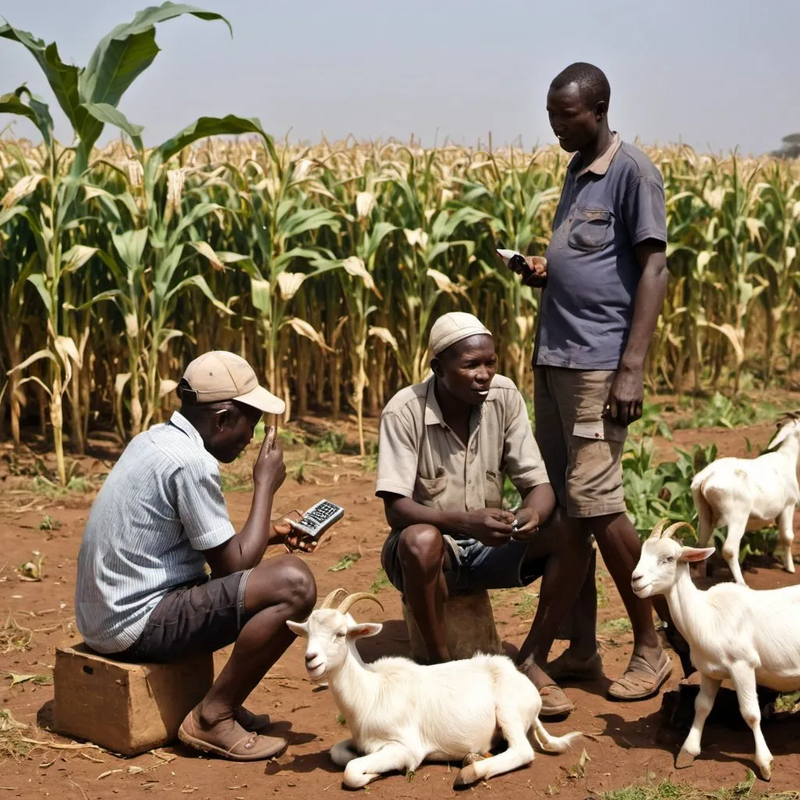Beyond the Forecast
Empowering Malawians through Effective Public Weather Services
Yobu Kachiwanda, Head of Public Weather & Aviation Services, at the Department of Climate Change and Meteorological Services Malawi, discusses the role of public weather services in Malawi, particularly their contribution to disaster risk reduction and agricultural productivity. He explains how weather forecasts are disseminated to the public through radio and TV stations, and how the Department of Climate Change and Meteorological Services (DCCMS) evaluates the effectiveness of these services. The discussion, between Yobu Kachiwanda and Collison Lore, also explores how public weather services are adapting to climate change by providing more timely and relevant information to the public.

Qtn. Briefly explain the role, main programmes and goals of public weather and aviation services under the Department of Climate Change and Meteorological Services (DCCMS) Malawi?
Ans. The public weather service is entrusted with a task of protecting life and property. It provides a coherent range of weather information and weather-related warnings that enable the public to make informed decisions in their day-to-day activities, thus contributing to the protection of life and property. The main programmes under public weather services include;
- Public Awareness and Educational Programmes
- National commemoration days (World Met days, Africa Public day), public talks, Seminars, workshops and visits.
- Broadcasting Weather on Radio & TV

The goals of public weather services include;
- To build up a high level of awareness of hazards and preparedness on how to deal with them.
- To increase weather literacy and interest in meteorological topics in general and also ensure that warnings and forecasts provided by the Department of Climate Change and Meteorological Services (DCCMS) are understood by the intended users.
- To strengthen relationships between members of the hazard’s community emergency authorities and the media in order to minimize the potential of misinterpretation of information and communication of misinformation to the public.
- To provide information to the public on the role of the Department of Climate Change and Meteorological Services, what types of products and services are available and how to obtain them.
Qtn. How do public weather services in Malawi contribute to disaster risk reduction efforts, particularly for events like floods and droughts?
Ans. Public weather services in Malawi play a vital role in reducing the impact of weather-related disasters by providing timely information including warnings, forecasts, advisories etc., and by fostering collaboration among various stakeholders hence building community resilience.
Typically, early warning system alerts have been broadcast via radio and television. However, valuable time is lost in the process of getting the message from the DCCMS to the stations, and for them to then broadcast it, getting the information to people on the ground. Recognizing that almost everyone now has access to a cell phone in Malawi, the DCCMS has seized the opportunity to close the communication gap by sending out the alerts by WhatsApp. The alert is received more quickly and provides more time for appropriate action. The “Weather Chasers Malawi” WhatsApp group was created by the DCCMS in January 2016 under the Common Alert Protocol. As well as for early warnings for storms, floods and lightning, the medium is used to disseminate the 24 hour forecast as appears on evening television and in daily newspapers. Daily observations recorded by the registered keepers from 21 weather stations are also sent through the list.
The development of meteorological science means that weather forecasters now have greater skill and, with the aid of hydro-meteorological monitoring, are better able to identify potential flood conditions.

Qtn. Beyond basic forecasts, how do Malawian public weather services incorporate agricultural needs into their information dissemination?
Ans. We enhance agricultural planning by providing tailored seasonal outlooks and crop-specific advisories based on weather forecasts. We promote climate-smart agriculture initiatives through helping farmers integrate agro-meteorological information into agriculture. Through capacity-building efforts and partnerships with agricultural institutions such as Department of Agriculture Extension Services (DAES), we also empower farmers to interpret weather forecasts effectively, implement adaptation measures, and optimize agricultural practices for productivity and resilience.
Qtn. In what ways do public weather services collaborate with radio and TV stations in Malawi to ensure widespread access to weather updates?
Ans. We work closely with radio and TV stations to make sure that everyone can get weather updates easily. We share weather information with these stations, which then broadcast it to people across the country. By teaming up with radio and TV stations, weather services reach a broad audience, including those in remote areas who may not have access to other sources of information. We also train journalists from different radio and TV stations on how efficiently they can report weather-related information for the betterment of the country. This collaboration ensures that everyone, regardless of location, can stay informed about the latest weather forecasts and warnings, helping them prepare for any potential hazards.
Qtn. How does the Department of Climate Change and Meteorological Services (DCCMS) evaluate the effectiveness of public weather services in reaching different communities across Malawi?
Ans. DCCMS engages in community outreach activities to directly interact with different communities and gather feedback on the accessibility and relevance of weather services. The Department also conducts assessments to determine the geographical coverage of weather information dissemination. DCCMS engages in community outreach activities to directly interact with different communities and gather feedback on the accessibility and relevance of weather services.
Qtn. As climate change brings more extreme weather events, how are public weather services in Malawi adapting to provide the most relevant and timely information to the public?
Ans. Public weather services is strengthening early warning systems to provide timely warnings, alerts and advisories about impending extreme weather events. This involves improving the monitoring and detection of meteorological hazards and enhancing communication networks to ensure that warnings reach at-risk communities promptly. We are also engaging with local communities to raise awareness about climate change impacts and build resilience to extreme weather events.
DCCMS recognized a broader opportunity for innovation in climate services, through the use of WhatsApp. As earlier noted, participants on the “Weather Chasers Malawi” WhatsApp group are encouraged to send in their own observations of weather conditions — with location and time. This is an example of citizen science, where laypeople are able to contribute to scientific development. The “spotter reports” provide information to ground truth forecasts to DCCMS. Reported observations can confirm hazardous weather detected by the satellites, but they can also identify where the forecasts are frequently inconsistent with observed conditions.
Spotters act as the eyes and ears of DCCMS in the field, and provide critical verification that helps improve future warning services. This WhatsApp group thus acts as a two-way communication channel. On the one hand, DCCMS can disseminate forecasts and early warning. On the other hand, it facilitates the transmission of feedback through spotter reports which can be used to improve the quality of future forecasts and warning services. Technology is thus playing a vital link in the chain to ensure reduction in negative impacts from weather events in Malawi.
Qtn. What is your last word on Public Weather Services in Malawi?
Ans. It is important to note that Public Weather Services Promotes the following critical issues;
User Understanding- To understand the information the product must be presented in plain, concise language and the user must know the meaning of the meteorological terms used.
User Awareness-To receive the information the user must be aware of the services available and the means by which they can be accessed.
User Faith-For a user to believe the information DCCMS must have a public image of credibility, reliability, accuracy and timeliness.

